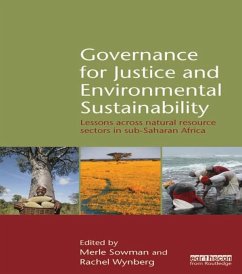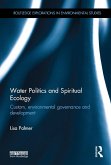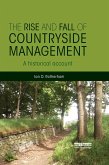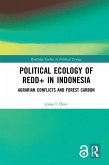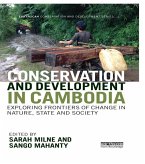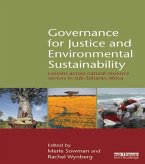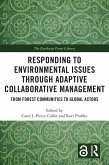Understanding the governance of complex social-ecological systems is vital in a world faced with rapid environmental change, conflicts over dwindling natural resources, stark disparities between rich and poor and the crises of sustainability. Improved understanding is also essential to promote governance approaches that are underpinned by justice and equity principles and that aim to reduce inequality and benefit the most marginalised sectors of society. This book is concerned with enhancing the understanding of governance in relation to social justice and environmental sustainability across a range of natural resource sectors in Sub-Saharan Africa. By examining governance across various sectors, it reveals the main drivers that influence the nature of governance, the principles and norms that shape it, as well as the factors that constrain or enable achievement of justice and sustainability outcomes. The book also illuminates the complex relationships that exist between various governance actors at different scales, and the reality and challenge of plural legal systems in much of Sub-Saharan Africa. The book comprises 16 chapters, 12 of them case studies recounting experiences in the forest, wildlife, fisheries, conservation, mining and water sectors of diverse countries: Madagascar, Zimbabwe, Botswana, Namibia, South Africa, Zambia, Mozambique, Sierra Leone and Cameroon.Through insights from these studies, the book seeks to draw lessons from the praxis of natural resource governance in Sub-Saharan Africa and to contribute to debates on how governance can be strengthened and best configured to meet the needs of the poor, in a way that is both socially just and ecologically sustainable.
Dieser Download kann aus rechtlichen Gründen nur mit Rechnungsadresse in A, B, BG, CY, CZ, D, DK, EW, E, FIN, F, GR, HR, H, IRL, I, LT, L, LR, M, NL, PL, P, R, S, SLO, SK ausgeliefert werden.

